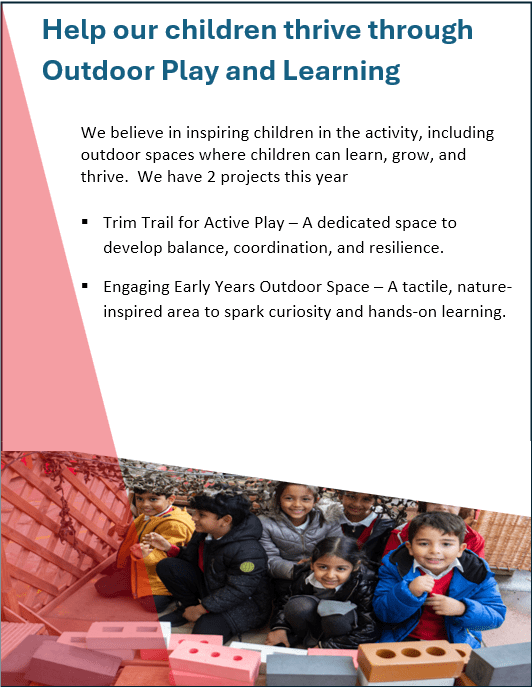At Kestrel Mead, we take the emotional health and well-being of both our pupils and staff extremely seriously. As a school, we recognise that it is important to promote a mentally healthy school environment through our compassionate, respectful and positive attitude to education. We promote a supportive and inclusive ethos, which values parents and carers involvement and contributions.
Through our school values of Resilience, Compassion, Respect and Curiosity we hope to create confident individuals who are successful learners. Everyone within the school, whatever their contact with the children may be, shares the responsibility for creating a positive ethos and climate of respect and trust.
As a school, we hope to:
- Create an enthusiastic and engaged learning community that will achieve its full potential.
- Develop the whole child
- Be at the heart of our community
Ways in which we promote health and well-being in school:
- Through the use of Learnful. Learnful schools develop and improve the mental health and well-being of staff and children in all year groups at primary school.
- PSHE lessons
- PE lessons
- Swimming sessions
- After school clubs
- Cooking club
- Sports day
- TMET competitions
- Anti-bullying week
- Mental Health Awareness Week
- Well-being leaders to support on the playground
- A primary leadership team that work on making positive changes within the school
- Healthy school
- School lunches for children
Ways that we manage staff wellbeing:
- We want our staff to be physically and mentally well so that they can enjoy their job and perform to the best of their ability.
- Weekly staff shoutouts
- Staff have an open-door policy to allow others into their classrooms to see their lessons
- Staff share planning with their team
- Learning walks have replaced formal observations
- Meetings have a clear focus
- A culture of collaboration – staff support each other
- We carefully plan the 1265 directed hours so that time is given to all necessary tasks and duties.
- Collaboration and teamwork are a strong feature of our school. Staff work together well, support each other, and respect each other.
- Distributed leadership ensures that roles and responsibilities and shared and personal preferences and expertise are considered.
- We have set up clear communication strategies. Weekly staff bulletins and staff briefings reduce the amount of all staff emails that can cause cognitive overload.
- We give staff a voice in decision-making. We seek out ways in which the voice of staff is included in the decision-making process across the school. Workload inquiry groups were an example of how staff voice drove change.
- We actively tackle mental health stigma within the organisation, promoting an open and understanding culture among staff, parents, and children.
- We give the same consideration and support to mental health as physical health, including in the management of staff absence.
- Leaders look for ways to support staff in their career progression with CPD offers, termly conversations with the principal, and a thorough ECT programme.
Pastoral Team:
We are incredibly lucky to have a wonderful pastoral team who work in our school. Mrs K Hulbert is our family worker, she has created fantastic connections with families who may be experiencing difficult times and can offer them support and guidance putting safety at the heart of her work.
Mrs Wheatstone and Mrs Unadkat are new additions to our pastoral support team, where they work on attendance, safeguarding and behaviour support. They work with children in small groups or 1 to 1 sessions to support them with feelings, emotional literacy and strategies to support self-regulation.
Meet the Team
 |  |  |
| Mrs K Hulbert Family Worker | Mrs Wheatstone Pastoral Support Infants | Mrs Unadkat Pastoral Support Juniors |
Wellbeing:
We recognise that children’s mental health is an extremely important factor in the well-being of our pupils, therefore we appoint a group of Well-being leaders each year. At the beginning of the year, the leaders meet to decide on what they want to work on throughout the year to improve our well-being offer. Leaders will meet regularly to feedback on ideas and thoughts from their class as well as work together on their action plan for the year. As well as this, the wellbeing leaders will help children to make friends and play with them at break times and lunch times, take part in school-wide events such as anti-bullying week and promote the key values in our school.
Wellbeing award
Well done to Ms. Mckee for her work on this award and thank you to all of the leaders that pulled together the evidence bank demonstrating and celebrating all of the wonderful work that we do in school. Here is a snip of the feedback. “It is with great pleasure that we present to your school community a National Wellbeing Gold Award in acknowledgment of your participation in the Raising Attainment with Wellbeing Programme: Putting wellbeing at the heart of learning, teaching and leadership I cannot praise you enough for your work, and the quality of your submission. In terms of data, evidence and the depth of detail, it was one of the best we have receiv brilliant job, well done indeed! It is clear that the school community is on a journey towards an Ofsted Outstanding Grade… an appropriate reward for such excellent evidence-based improvement. You will find a certificate and logos attached that can be used widely. We hope your wellbeing journey acts as inspiration and motivation to other school communities in UK and globally, as we collectively seek to put wellbeing at the heart of everything a school should do and stand for.”





 Be The Best That You Can Be
Be The Best That You Can Be